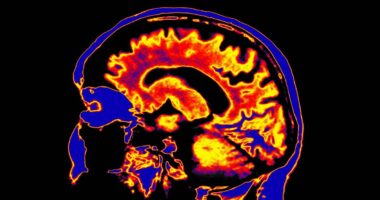Share this @internewscast.com
Officials have warned about a new COVID-19 strain that triggers distinct symptoms following an increase in cases. People in Ireland have been advised to stay at home for two days if they are displaying signs of infection. The fresh strain – NB.1.8.1 – has been noticed by experts in in the UK, US and Australia. Instead of just flu-like symptoms, this version of the virus causes gastrointestinal problems, such as nausea, vomiting, diarrhoea and heartburn. Patients who experience bloating, constipation and abdominal pain.
World Health Organisation (WHO) documents state that NB.1.8.1 is “growing substantially across all WHO regions”. It adds that the variant’s expansion has “only begun recently”, so there are low levels of sequencing data. This means variant proportions show spikes, and the variant has not been detected in some regions. A report added that NB.1.8.1 seems more transmissible than other strains, although there is no evidence that suggests it causes more acute illness, according to The Mirror.
The WHO said: “Currently there are no studies assessing the impact of this variant on clinical outcomes.
“Although, there is regular co-ordination and data sharing between all WHO Regional Offices, countries, and partners, reporting of new hospitalizations, ICU admission data with the WHO has been decreased substantially, therefore caution should be taken when interpreting trends in routine surveillance of severe cases.
“No studies have been conducted yet on the potential impact of the variant on the activity of antivirals like remdesivir and molnupiravir.”
Specialists added that routine clinical surveillance data does not indicate any signs of increased severity associated with NB.1.8.1, compared to previously circulating variants.
Experts noted: “Currently there is no evidence of increases in indicators like COVID-19-related ICU admissions and deaths per hospitalizations, or all-cause mortality.”
WHO states that the new variant first appeared in January.
Then, by late April, it was responsible for around 10.7% of global infections, up from just 2.5% a month previously.
There has been a rapid rise in Ireland in recent weeks.
According to data from the Health Protection Surveillance Centre (HPSC), the proportion of sequenced COVID-19 samples linked to NB.1.8.1 increased from 3.7% to 27.3% in the last five weeks, Dublin Live reports.














